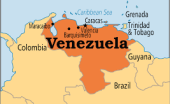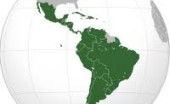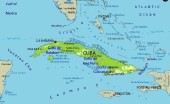Molly Minturn - My family is heartbroken to share that my father died in surgery on Monday, Feb. 10. It…
Cuba & Fidel Castro
Written by Diana Thebaud Nicholson // February 25, 2008 // Americas, Foreign Policy, Geopolitics, U.S. // Comments Off on Cuba & Fidel Castro
In-depth coverage:
BBC Country profile and related news stories
New York Times World news about Cuba, including breaking news and archival articles
Reuters
wednesday-night.com
February 25
(NYT) HAVANA — Raúl Castro, who has labored in the shadow of his brother Fidel since the days of their revolution, became Cuba’s new president on Sunday, ending his brother’s 49-year rule and washing away hopes on this Communist island that a younger generation might take power. More
February 22
“Exhausted” Fidel Castro rebuts U.S. candidates
February 21 2008
Obama, Clinton Differ Slightly on Castro
Democratic presidential contender Hillary Rodham Clinton said Thursday night she would not sit down with Raul Castro until he implements political reforms in Cuba, but rival Barack Obama said he favored a meeting without preconditions.
(The Economist) Castro’s legacy
Rue the damage he has done. But lift the embargo against a sad, dysfunctional island
February 20 2008
Battle for Cuba’s future is brewing behind the scenes
February 19
(NYT) Fidel Castro Resigns as Cuba’s President
(CSM) Fidel Castro retires as president of Cuba
After nearly 50 years in power, Fidel effectively hands the reins to his younger brother, Raúl Castro. … Unclear how much will change
(Reuters) Cuban dissidents see ray of hope in Castro retirement
MADRID (Reuters) – Cuban dissidents expelled from the island to Spain only days ago said on Tuesday that Fidel Castro’s retirement changed little but could bring a transition to multi-party democracy nearer.
(BBC) US urges reform as Castro quits
US President George W Bush has called on Cuba to prepare for free elections after Fidel Castro’s announcement that he is retiring on health grounds.
Castro’s Resignation: An Opening for U.S.?
Susan Davis reports on reaction to Fidel Castro’s resignation
This morning’s resignationof Cuban dictator Fidel Castro prompted immediate responses from presidential candidates and congressional leaders, as well as renewed discussions of normalizing trade relations with the communist country.
Arizona Republican Rep.Jeff Flake, who has split with the majority of his party to actively promote ending the embargo against Cuba, said Castro’s resignation could open “a new chapter” in U.S.-Cuba relations. “Whether that new chapter will be open, however, largely depends on a new approach to Cuba by the U.S. Government,” Flake said. “The U.S. embargo gave Fidel a tremendous advantage in terms of lengthening his tenure. Let’s not give his successor the same advantage by keeping the embargo in place.”
Adios, Comandante How did Fidel Castro stay in power for so long?
By Ian Bremmer
On Tuesday, Feb. 19, Fidel Castro announced that he is stepping down as Cuba’s president. In early August 2006, when Castro first passed the reins of power to his younger brother Raúl, Ian Bremmer explained how Castro “survived nine U.S. presidents, the collapse of his Soviet benefactor, and four decades of American attempts to undermine his government.”
February 18
(US News & World Report) What Didn’t We Do to Get Rid of Castro?
Declassified documents tell more tales
By Linda Robinson
MIAMI–Cuban leader Fidel Castro, who will mark his 40th year in power on January 1, has lasted through eight U.S. presidencies. Some of America’s efforts to dislodge him are well known, especially the Bay of Pigs invasion and the CIA’s infamous assassination plots involving poison cigars, an exploding seashell, botulin pills, and Mafia hit men in the early 1960s. But the full history of U.S. attempts to unseat Castro remained sealed in government files until this year. During the course of 1998, an estimated 10,000 pages of documents have been quietly declassified.



